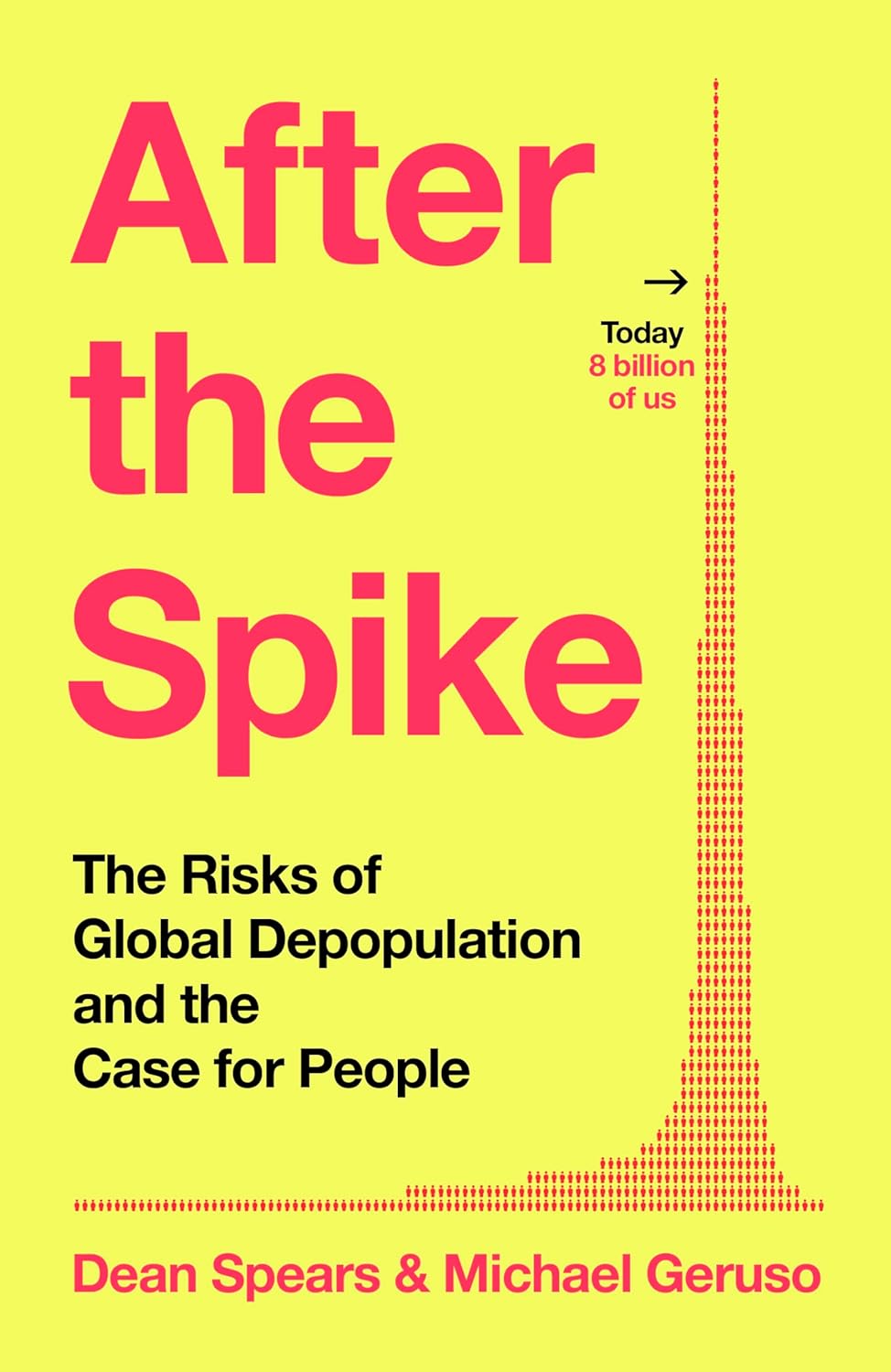內容簡介
內容簡介 一本發人深省的探索之作,揭示人類正以前所未有的方式走向全球人口減少的道路——以及為什麼阻止這一趨勢符合每個人的利益。如果我們持續照現在的方式發展,隨著全球出生率持續下降,人類總人口將在未來幾十年內達到高峰——隨後將迅速且急遽地下滑。我們或許會以為:人口減少會是好事——對地球更好,對留下來的人也更好。但在《高峰之後》(After the Spike)一書中,兩位頂尖人口經濟學家迪恩.斯皮爾斯(Dean Spears)與麥克.傑魯索(Mike Geruso)要我們重新思考這個假設。他們審慎權衡了圍繞這一爭議性議題的各種證據與主張,說明為什麼人口減少既無法解決當前急迫的氣候危機,也不會讓人們的生活變得更好。更有可能發生的,是過去兩個世紀中推動生活水準大幅提升的進步將會放緩,甚至倒退。隨著人類的未來縮小,它將變得更脆弱、更不確定,也將更難擺脫全球性的貧窮、疾病與不公。然而,阻止這場人口下降、實現人口穩定,並不代表必須犧牲永續環境的未來,也不意味著回到過去性別不平等的社會結構。事實上,他們指出,唯有將女性的生育權利與個人選擇作為核心,才能實現這個目標。但若我們希望未來的世代能擁有比我們更美好的生活,就必須正視這項社會共同的任務:減輕父母與照顧者的負擔。 《高峰之後》是一部思路深刻且極具人文關懷的著作,為人類歷史即將面臨的重大轉折提供了重要啟示,也促使我們思考——我們想為這個星球、為我們的孩子、為彼此創造一個什麼樣的未來?An eye-opening exploration of humanity’s unprecedented path to global depopulation and why it's in everyone's interests to prevent itIIf we continue as we are, with birth rates falling globally, the world’s human population will peak in the next few decades – and then begin a sudden and rapid decline. It would be easy to think that fewer people would be better: better for the planet, better for the people who remain. In After the Spike, two leading population economists ask us to think again.Carefully weighing the evidence and the many claims that surround this controversial subject, Dean Spears and Mike Geruso explain why depopulation is not the solution we urgently need for the climate crisis, nor will it improve lives. Far more likely is that the progress which has raised living standards so dramatically over the last two centuries will slow or even reverse. As humanity’s future shrinks, it will become more fragile and less certain, and harder for us to escape from global poverty, disease and injustice.Halting this decline and stabilising the population need not mean sacrificing a greener future or reverting to past gender inequities. In fact, they argue, it can only be achieved with women’s reproductive rights and individual choice as driving forces. But if we want future generations to enjoy lives even better than our own, it’s time to take seriously society’s collective task of lifting the burdens of parents and other carers.Deeply reasoned and uncompromisingly humane, After the Spike sheds important light on a dramatic shift in the human story and asks us to consider what future we should want for our planet, our children, and one another.
作者介紹
作者介紹 關於作者**麥克.傑魯索博士(Dr. Michael Geruso)**是人口經濟學與公共經濟學專家,現任教於德州大學奧斯汀分校經濟系,為副教授。2023年至2024年間,他擔任美國白宮經濟顧問委員會(Council of Economic Advisers)資深經濟學家,負責健康與人口相關政策的諮詢工作。他擁有工程、政治科學與哲學三個學士學位,並於普林斯頓大學取得經濟學博士學位,之後於哈佛大學從事博士後研究,2014年加入德州大學奧斯汀分校任教。自2014年起,傑魯索博士即擔任「同理經濟研究機構」(r.i.c.e.)的董事會成員,亦為美國全國經濟研究局(NBER)與德州大學人口研究中心的研究成員。他的研究成果發表於《美國經濟評論》(American Economic Review)、《政治經濟學期刊》(Journal of Political Economy)、《人口學》(Demography)等頂尖學術期刊,並被《紐約時報》、《華爾街日報》、《全國公共廣播電台》(NPR)、Vox、《大西洋月刊》與《經濟學人》等主流媒體報導引用。**迪恩.斯皮爾斯博士(Dr. Dean Spears)**是人口經濟學與發展經濟學專家,同樣擔任德州大學奧斯汀分校經濟系副教授。他同時是「同理經濟研究機構」(r.i.c.e.)創辦人兼執行董事,以及德州大學「人口福祉倡議計畫」(Population Wellbeing Initiative)主任。他與黛安.柯菲博士(Dr. Diane Coffey)合著的《印度去哪了?:被遺棄的廁所、發展遲滯與種姓的代價》(Where India Goes)榮獲多項獎項。斯皮爾斯博士擁有普林斯頓大學公共事務碩士與經濟學博士學位,為德國勞工經濟研究所(IZA)與德州大學人口研究中心的研究成員。他的研究發表於《美國國家科學院院刊》(Proceedings of the National Academy of Sciences)、《自然氣候變遷》(Nature Climate Change)、《人口學》等重要學術期刊,並多次登上《紐約時報》、《國家地理》、《時代雜誌》、《華爾街日報》、《全國公共廣播電台》、Vox、《大西洋月刊》與《經濟學人》等媒體平台。About the AuthorDr. Michael Geruso is an economic demographer, public economist, and associate professor of economics at the University of Texas at Austin. From 2023 to 2024, he served as a senior economist at the White House Council of Economic Advisers, where he advised on issues of health and demography. He holds bachelor’s degrees in engineering, political science, and philosophy. He earned his PhD in economics from Princeton and completed postdoctoral work at Harvard prior to joining the faculty at the University of Texas at Austin in 2014. Since 2014, he has served on the board of the Research Institute of Compassionate Economics (r.i.c.e.). He is an affiliate of the National Bureau of Economic Research and of the Population Research Center at UT-Austin. His work has been published in top peer-reviewed outlets including the American Economic Review,the Journal of Political Economy,and Demography,and has been featured in The New York Times, The Wall Street Journal, NPR, Vox, The Atlantic, and The Economist.Dr. Dean Spears is an economic demographer, development economist, and associate professor of economics at the University of Texas at Austin. He is also the founding executive director of the Research Institute of Compassionate Economics (r.i.c.e.) and the director of the Population Wellbeing Initiative at UT-Austin. With Dr. Diane Coffey, he is the author of the award-winning book Where India Goes: Abandoned Toilets, Stunted Development, and the Costs of Caste. He holds a master’s in public affairs and a PhD in economics, both from Princeton. He is an affiliate of the Institute for Labor Economics (IZA) and of the Population Research Center at UT-Austin. His work has been published in top peer-reviewed outlets including the Proceedings of the National Academy of Sciences, Nature Climate Change, and Demography, and has been featured in The New York Times, National Geographic, Time, The Wall Street Journal, NPR, Vox, The Atlantic, and The Economist. --This text refers to an alternate kindle_edition edition.
